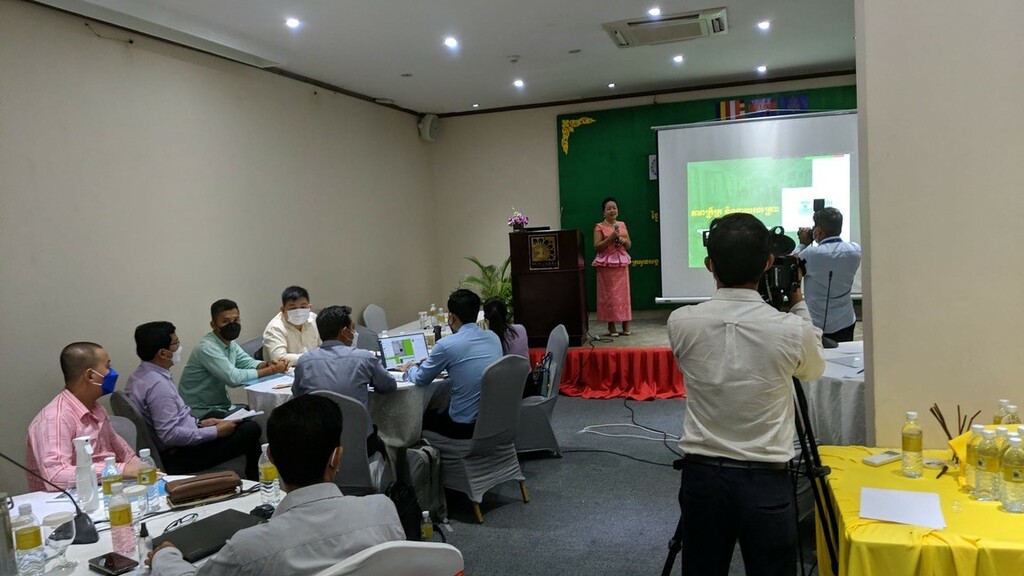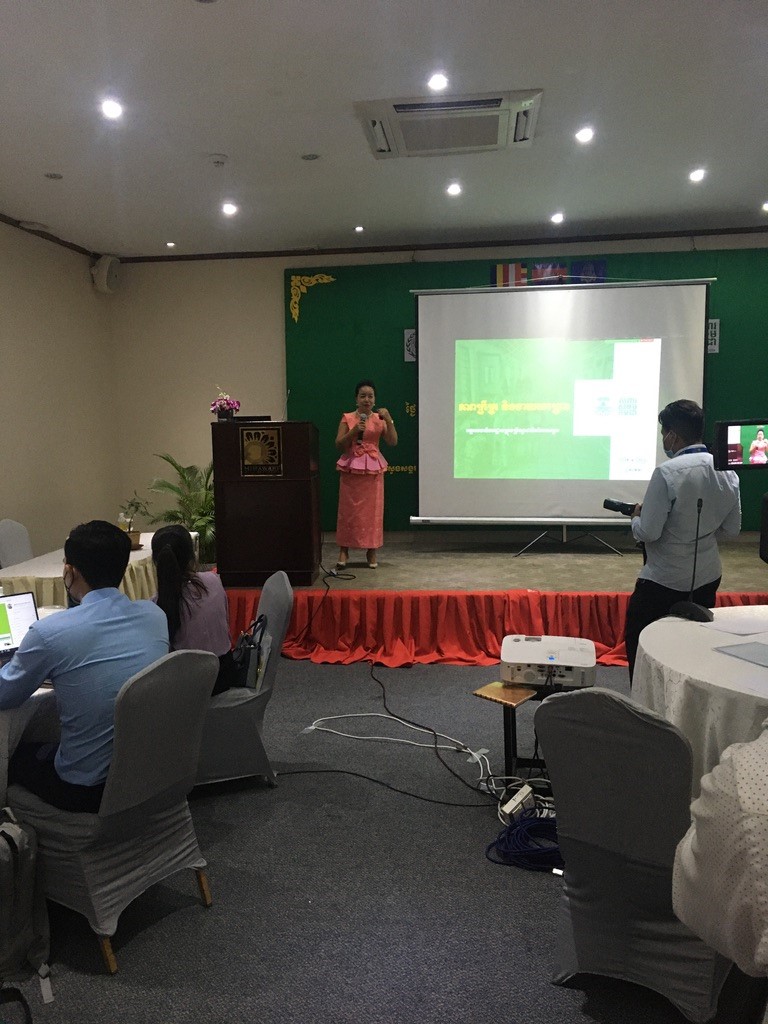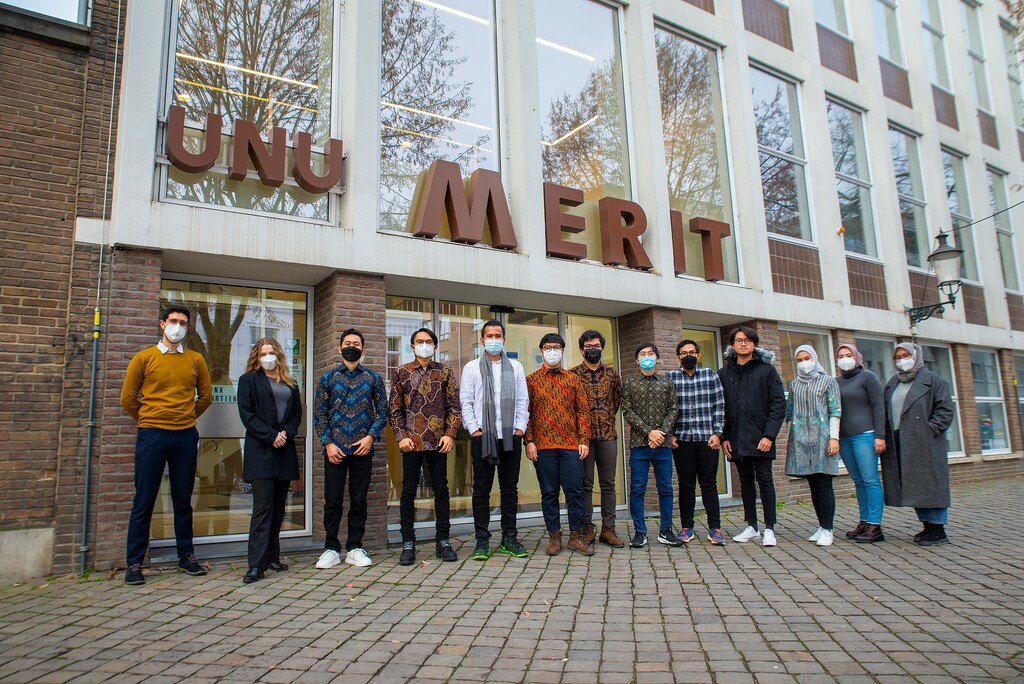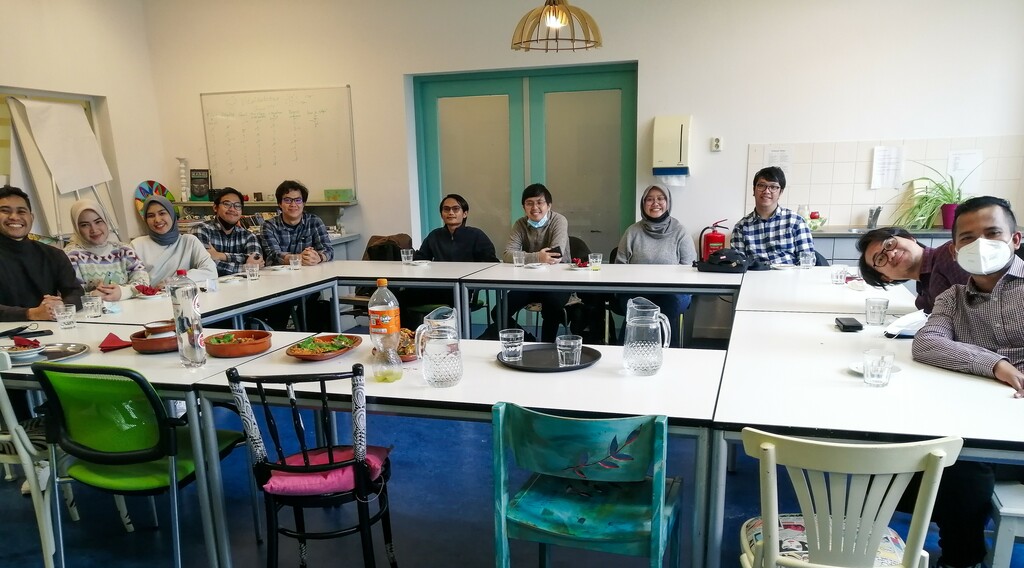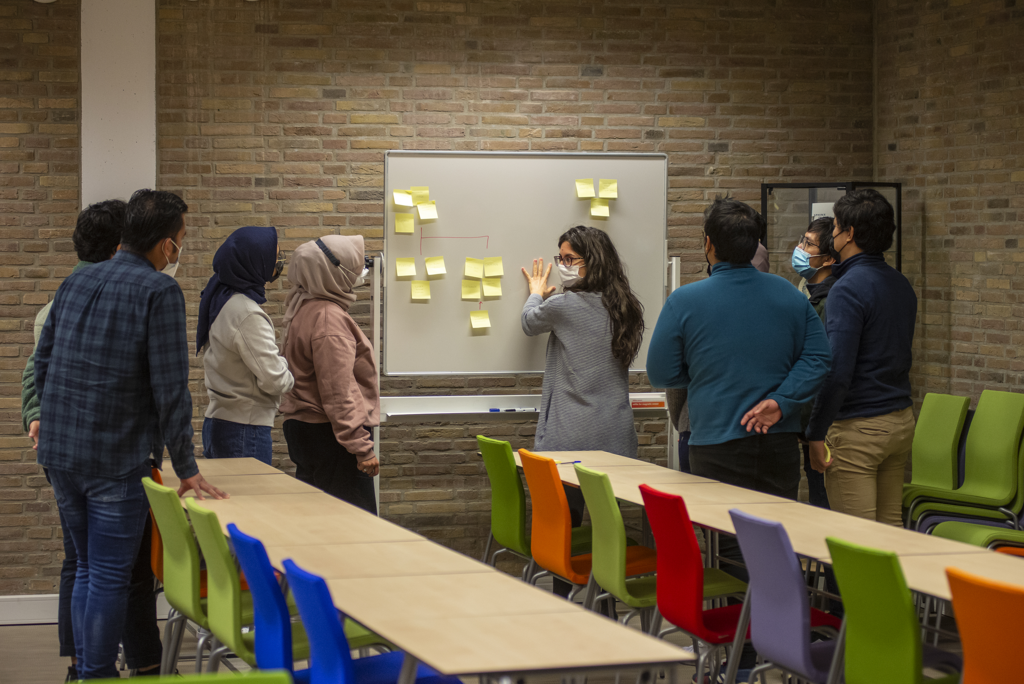- ABOUT US
- RESEARCH
- EDUCATION
- The Graduate School
- PhD Programme
- MSc Programmes
- Capacity Development
- News
- Design and Evaluation of Public Policies (DEPP)
- Design and Evaluation of Innovation Policies (DEIP)
- Evidence-Based Policy Research Methods (EPRM)
- Migration Management Diploma Programme (MMDP)
- Moving the Migration Policy Agenda Forward (MMPAF)
- Online Courses
- Short Courses (Masters)
- Tailor-made programmes
- UNU-MERIT, ITU Academy Training Centre
- Alumni
- Academic Funding
- NEWS
- EVENTS
- PUBLICATIONS
- LIBRARY
Tailor-made programmes
UNU-MERIT Capacity Development Office actively partners with governments, institutions and businesses to develop programmes that are tailored to the specific needs of the partner. Depending on the content field, context and target group of the programme, we jointly develop training activities that are relevant and serve the need of the partner yet are based on the state-of-the-art information and research in each policy field.
The tailor-made programmes vary from longer-term certificate training, short course offerings, workshops and combinations of the above in face-to-face, online and hybrid forms. Our aim as a capacity development office is not only to identify the best didactical training format in the short run jointly but also to understand the needs of our partners in the medium and long run. We are open to discussing ways forward, allowing participants to grow over time and institutions to create a partnership with us that includes training packages, research collaborations with research mentoring, training of trainers, internship and exchange options, and development of joint projects.
The programmes offered in 2020-2022 are:
Post-Graduate Diploma Programme in Migration Studies, Kenya (PgDMS) (2018 – present)
As part of a larger effort to build the capacity of the Department of Immigration Services (DIS) of the government of Kenya in establishing the Kenya Institute of Migration Studies (KIMS) training facility, UNU-MERIT has been commissioned to support the implementation of the PgDMS. The objective of the KIMS is to improve national and regional migration management through the provision of expert knowledge and skills to migration practitioners, researchers and scholars. The one-year certified university course awarded by the University of Nairobi is open to mid-level officers from migration-related departments in the IGAD region. The curriculum combines expertise from practitioners, academia, international organisations and NGOs on strategic migration governance.
UNU-MERIT has helped to co-design and deliver the PgDMS since its launch in 2018 with its first cohort. A second cohort went through the programme in 2020, and the programme is currently in its third cohort. UNU-MERIT delivers three courses as part of the programme: Introduction to Migration Studies, Migration Policy and Governance, and Migration and Development.
The objectives of this capacity-building initiative are twofold: first, to enhance the capacity of DIS lecturers to deliver the courses for the PgDMS through training of the teachers on the content relevant to the courses and skills transferable to other courses; and second, to safeguard that the courses in the PgDMS are successful in improving the skills of migration practitioners, researchers and scholars while meeting local and international standards.
Migration Management Diploma Programme, Rwanda (2019 – present)
In 2019, UNU-MERIT was contracted by the Directorate General of Immigration and Emigration of the government of Rwanda to teach a Migration Management Diploma Programme in Rwanda. The programme is designed for government officials with experience in migration and asylum. It is also open to other practitioners and students interested in managing migration and asylum policies. The training include stakeholder engagement workshops that involve regional migration experts, academics, practitioners, government officials and civil society organisations to tailor the curriculum to the needs of end-users.
MIMAK (2015 – present)
In 2015, UNU-MERIT joined a consortium with the International Centre for Migration Policy Development (ICMPD). It was commissioned by the Swiss Development Cooperation to carry out a project on “Strengthening Migration Management Authorities in Kosovo (MIMAK)”. The projects constitute a comprehensive effort to strengthen further government authorities and related inter-institutional mechanisms in migration management to improve evidence-based migration and migration-related policies and to inform the population on the benefits of regular migration and the consequences of irregular migration.
MIMAK aims to improve migration management and discourage irregular migration by strengthening the capacities of the migration management authorities in Kosovo. The training courses cover the following themes: conceptualising integration, determinants of immigrant integration, levels of integration (local, national, transnational), national integration policies in comparative perspective, local integration policies, and integration and admission policies.
SALAM (2021 – 2023)
In 2021, the South Asia Centre for Labour Mobility and Migrants (SALAM) was jointly initiated by three UN agencies, namely ILO, IOM and UN Women, under the GOALS Programme (Governance of Labour Migration in South and Southeast Asia) with several rounds of discussion with the International Institute for Population Sciences (IIPS), Mumbai, India and UN Agencies. SALAM will function as a Knowledge Hub for the South Asia region on labour migration knowledge.
UNU-MERIT is part of this initiative and has been selected to contribute to the capacity building of the Knowledge Hub by delivering thematic lectures and working papers to strengthen the efforts of the Hub and ensure its sustainability.
SALAM envisions promoting, understanding, strengthening research, enhancing teaching and capacity building to formulate evidence-based policy to protect migrants’ rights and promote decent work for achieving integration of migration with sustainable development. The secretariat for the Migration Centre for South Asia is located at IIPS with the support from UN organisations namely ILO, IOM and UN Women, in collaboration with some of the leading institutions working on migration in different countries of South Asia namely:
- Bangladesh: Refugee and Migratory Movements Research Unit (RMMRU),
- Nepal: Centre for the Study of Labour and Mobility (CESLAM) at Social Science Baha
- Sri Lanka: Institute of Policy Studies of Sri Lanka (IPS
- Pakistan: Sustainable Development Policy Institute (SDPI)
- India: International Institute for Population Sciences (IIPS)
Erasmus+ (2022 – 2024)
In 2022, UNU-MERIT joined a consortium of European institutions for a new Erasmus+ project Intercultural Learning Online (ILO) together with the European Migrant Platform (EMP), Aristotelio Panepistimio Thessalonikis, and Universita Degli Studi Roma Tre.
The growing immigrant population in Europe shows that there is a large number of refugees and immigrants whose skills, capacity and expertise are not adequately utilized in Europe. The research has shown that job market access, and participation is a challenging process for highly educated migrants who have moved to Western countries. This challenge should be recognized at the university level as well, as more and more students with immigrant backgrounds also need role models and working life success stories from immigrant lecturers and scholars. Several studies have shown that when immigrants can experience fast and effective job market participation, it increases their positive feelings regarding belonging.
The ILO project, with its global operators, will organize opportunities for highly educated immigrants to use their talents and capacity by lecturing in partner universities and by organizing shared workshops or short courses for the students. The extensive networks of these partners support sharing, promoting, and using the project results sustainably in broad contexts.
UNESCAP (2021-present)
The objective of this assignment is to develop five self-paced introductory online training modules on inclusive social protection. These modules aim at building an understanding of and awareness of critical social protection concepts and approaches in the context of Asia and the Pacific. The target group of the online modules are mid-career professionals from different line ministries and other stakeholder organizations.
Jointly with the team from UNESCAP, our staff developed the content, added relevant examples and created quizzes and reference materials – allowing users of the courses to obtain an overall understanding of social protection policies and use thereof in specifically Asia and the Pacific.
IOE (2021 – present)
Through the Business Advisory Group on Migration, the International Organisation of Employers (IOE) commissioned UNU-MERIT to carry out a series of capacity-building “employers’ consultation” sessions for private sector employers on skills mobility and how technology can be used to enhance ease of mobility, with appropriate reference to objectives 5, 6 and 18 of the Global Compact for Migration (GCM). The sessions started in 2021 and are due to be completed in 2022.
These sessions are part of the regional workshop and are designed to enhance the capacity of employers to hold dialogue with government representatives on issues relating to skills mobility. All sessions will result in knowledge on the topic and specific messages for participants to convey to their respective governments regarding policy areas to prioritize to bring about desired changes.
UNICEF Cambodia (2021)
In spring 2021, UNU-MERIT, United Nations University began a collaboration with UNICEF Cambodia to develop a foundational capacity development programme in social protection for policy-makers in Cambodia. While Cambodia has made enormous strides in reducing poverty and vulnerability through a raft of social protection instruments, UNICEF and senior ministry personnel are committed to ensuring that policymakers at national and sub-national levels have a common core of understanding on social protection. This will help Cambodia to build a sustainable and effective protection mechanisms for generations to come. The team from UNU-MERIT, United Nations University – led by Dr Bruno Martorano – developed two training programmes. The first training – delivered online – aimed at national level policy makers and was delivered by experts including our own Professor Dr Franziska Gassmann, Professor Dr Esther Schuring, Mr Giulio Bordon and guest lecturer Ms. Valentina Barca. This training introduced key terminology and concepts at a global and regional level, including poverty, common social instruments, key implementation concepts, financing and importantly shock-responsive social protection. The second training, delivered by participants in the first training under the guidance of the UNU-MERIT, United Nations University team was delivered in person in Phnom Penh in February 2022. These sessions consisted of lectures on similar topics as in the first training but brought into focus for the Cambodian context by people working in the sector in the Kingdom. The training sessions were warmly received by participants who welcomed the opportunity to learn, explore and think critically about social protection topics in the context of Cambodia, and ask questions of our in-house and guest experts. The training material, compiled as an offline compendium, will be available for policy makers in Cambodia in the years to come.
UNICEF Montenegro (2021)
Capacity development on microsimulation models for redistributive policy scenarios in Montenegro. The overall objective of the training was to build the capacity of government stakeholders to use the policy simulation tools to enable the planning, development, and implementation of effective and sustainable social protection policies. The microsimulation model aims to inform stakeholders on the potential impact of policy reform scenarios.
Programme in Social Protection Policy Design, Monitoring and Evaluation (2007 - present)
The course programme in Social Protection Policy consists of a combination of online and face-to-face courses that can be tailored to institutional needs. With the basic course programme in place, we provide training packages that are standardised that can be complemented with tailored elements of a programme.
An example of such course is the training package jointly with Evaplan (University of Heidelberg). In this tailored setting, UNU-MERIT offers training to Social Protection practicioners from Indonesia, Cambodia, Thailand and the Philippines. While embedded in a larger blended training programme with elements both in the home country, Germany and The Netherlands, UNU-MERIT specifically focuses on training courses dealing with Social Protection Policy design, implementation and evaluation. (For more information, check: https://evaplan-training.org/group/20)
Field trip to Athos, Maastricht:
© 2024 UNU-MERIT | Maastricht University


